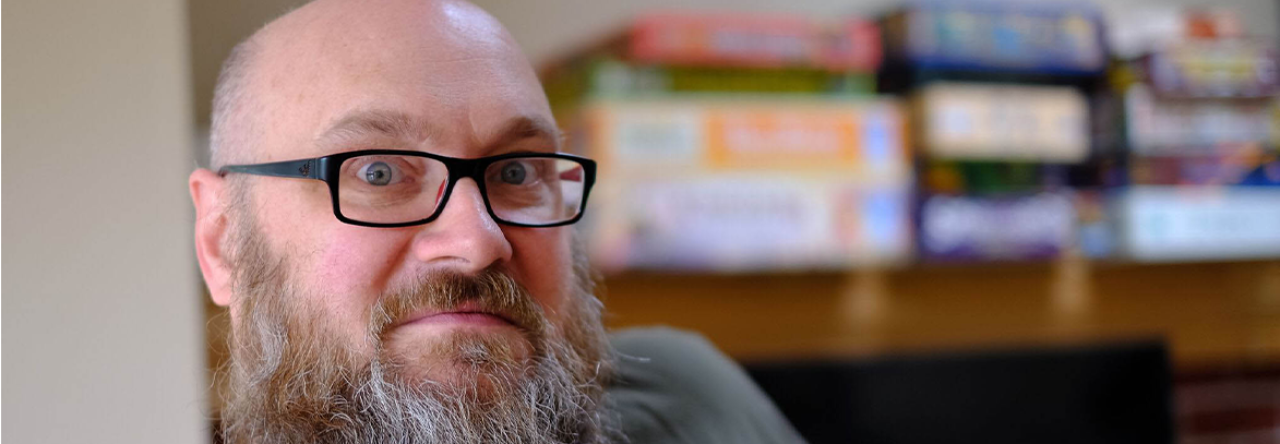 Last night I was honoured to participate in a pre-show panel for the 9th Hour Theatre Company‘s production of GodSpell. 9th Hour uses theatrical presentations to “explore, examine, and express questions, ideas, and stories relating to faith.” (from their website) They steward this exploration through panels and discussions of the themes that emerge within the play which is how I became involved. Alexandra Bender reached out to see if I was interested in helping out as a local theologian. When I looked that the topics they were exploring through these panels (Poverty, Good News, and Loving your Enemies) I was excited about each of them, however my schedule fit best with the two panels on poverty: “Give to the poor! But will the poor always be among us?” I am back again this coming Friday evening to talk about this once again if you would like to join us.
Last night I was honoured to participate in a pre-show panel for the 9th Hour Theatre Company‘s production of GodSpell. 9th Hour uses theatrical presentations to “explore, examine, and express questions, ideas, and stories relating to faith.” (from their website) They steward this exploration through panels and discussions of the themes that emerge within the play which is how I became involved. Alexandra Bender reached out to see if I was interested in helping out as a local theologian. When I looked that the topics they were exploring through these panels (Poverty, Good News, and Loving your Enemies) I was excited about each of them, however my schedule fit best with the two panels on poverty: “Give to the poor! But will the poor always be among us?” I am back again this coming Friday evening to talk about this once again if you would like to join us.
First a word about the play. I found the play really moving. It opens up contemporary questions about who is the other and what kind of person the gospel (godspell) encourages us to be. The base text is the Gospel of Matthew but it is punctuated with “headlines” that bring the gospel account right into the present. There is also a real interaction with the gospel text that is refreshing, we witness this as an ongoing wrestling and dialogue (back and forth between Matthew’s readings and the characters responses). This is a great contrast to the usual passive reception of text that we find in liturgy. I do not want to spoil the story, it is not your typical passion narrative, but right from the beginning the play unsettles you and provokes you. A couple of things that might not have been intentional but moved me greatly were the diversity of actors and the gradual and subtle emergence of a cross through the props, on Friday I’ll have to ask George Dutch if this was deliberate. I loved that the cross didn’t dominate the narrative because it is rightfully part of a much larger narrative, and I think us evangelicals sometimes forget that. I highly recommend the play even if you are not a Christian. If you are a Christian take the opportunity to let the story make you uncomfortable – a good telling of the gospel should always make us a bit uncomfortable.

The panelists were moderated by Alexandra Bender and included George Dutch (9th Hour Theatre Company), Moira Davis (Ottawa Innercity Ministries), and myself. It was interesting to see the themes emerge as we explored the subject through Alexanrda’s guiding questions. George served as the dramaturge for this play which meant he worked with the director on how the themes were consistently expressed through the whole of the play. It was apparent from the conversation that he saw the gospel as having implications for the whole of life by orienting us towards being good news for the whole world. He also challenged some of the ways that we see success in our current social context, and how those views serve to twist our understanding of who we see as the poor. Moira used her own wealth of experience working with marginalized and homeless youth to draw us into questions of who are the excluded in society and how we might see a wisdom of inclusion emerging in the lives of those who have experienced marginalization first hand.
I tried to build on the conversation my colleagues started by highlighting how we get caught up in narratives that often reinforce the status quo. I looked briefly at the times in the gospels where Jesus says “the poor will always be among you” highlighting that in each case something very uncomfortable was happening and the statement was akin to calling out our tendency to deflect. We should have sold that perfume, for example, and used the money to feed the poor. John’s gospel is the most obvious about what Jesus is doing because the narrator tells us that Judas really had no intention of using the money for the poor. When Jesus responds with “the poor you will always have with you” he is being very provocative, that phrase comes from a passage in Deuteronomy that is all about actively lending to the poor and forgiving debt every seven years. My point is that we read those stories of Jesus in ways that do not always challenge our personal comfort – but if we dare to scratch the surface of the gospel texts we often find something that challenges us to our cores. My invitation to the people was to let the Godspell unsettle us, to challenge us. My hope is that this will help us be good news to the whole world.
The picture of the panel discussion was captured by my lovely wife Sharon. I was grateful that we could turn this event into a date night.


Let me know your thoughts...